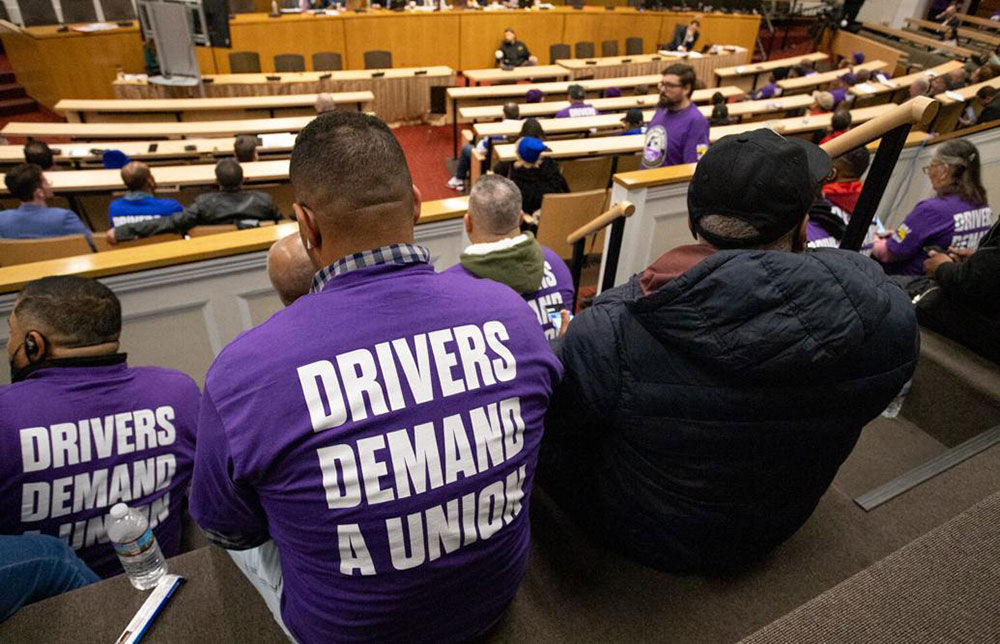Rideshare and delivery drivers, currently classified as independent contractors, would be entitled to full employment benefits if a bill filed in the House by Haverhill Rep. Andy X. Vargas wins passage.
Vargas testified Monday in support of his bill which would benefit drivers for such companies as Uber, Lyft, Instacart and others by requiring employers to provide benefits and protection. Vargas said he worked as driver while in college and often earned less than minimum wage.
“Classifying drivers as independent contractors shifts nearly all the risk and liability onto drivers and allows companies to skirt the basic protections other employers must comply with. Our local businesses in Haverhill pay into unemployment insurance, workers comp and provide a minimum wage and overtime. There’s no reason that multibillion-dollar corporations should get to carve themselves out and create their own set of rules,” he said, calling it “the worker’s rights issue of our times.”
Vargas filed the bill in partnership with the Massachusetts AFL-CIO and Sen. Lydia Edwards of East Boston. He joined Edwards, AFL-CIO’s president Chrissy Lynch and a former rideshare driver to testify in support of the bill in front of the Joint Committee on Financial Services.
Vargas’ bill would affirm that drivers for these types of companies are employees under the law, ensuring they receive the full slate of labor protections other employees receive. The bill also expands protections by ensuring that drivers are compensated for all working time. The bill mandates data collection to increase transparency and allows municipalities to mitigate issues associated with these companies such as smog and traffic congestion.
Uber and Lyft are currently being sued by the Attorney General’s office for misclassifying their drivers as independent contractors. The Attorney General’s office alleges drivers are employees and are entitled to the protections that classification entails.
Vargas’ office said the bill comes off the heels of the New York Attorney General’s office announcing that Uber and Lyft must pay $328 million as part of a settlement in response to a wage theft lawsuit. The companies will also be required to pay a minimum wage and pay into certain state systems in New York including unemployment insurance. Prior to the New York lawsuit, the issue of gig worker classification became a battle in California. Rideshare companies poured $224 million into a ballot question campaign. Known as Prop 22, that carved rideshare drivers out of employee protections by classifying them as independent contractors. Prop 22 also limited drivers’ ability to collectively bargain.
